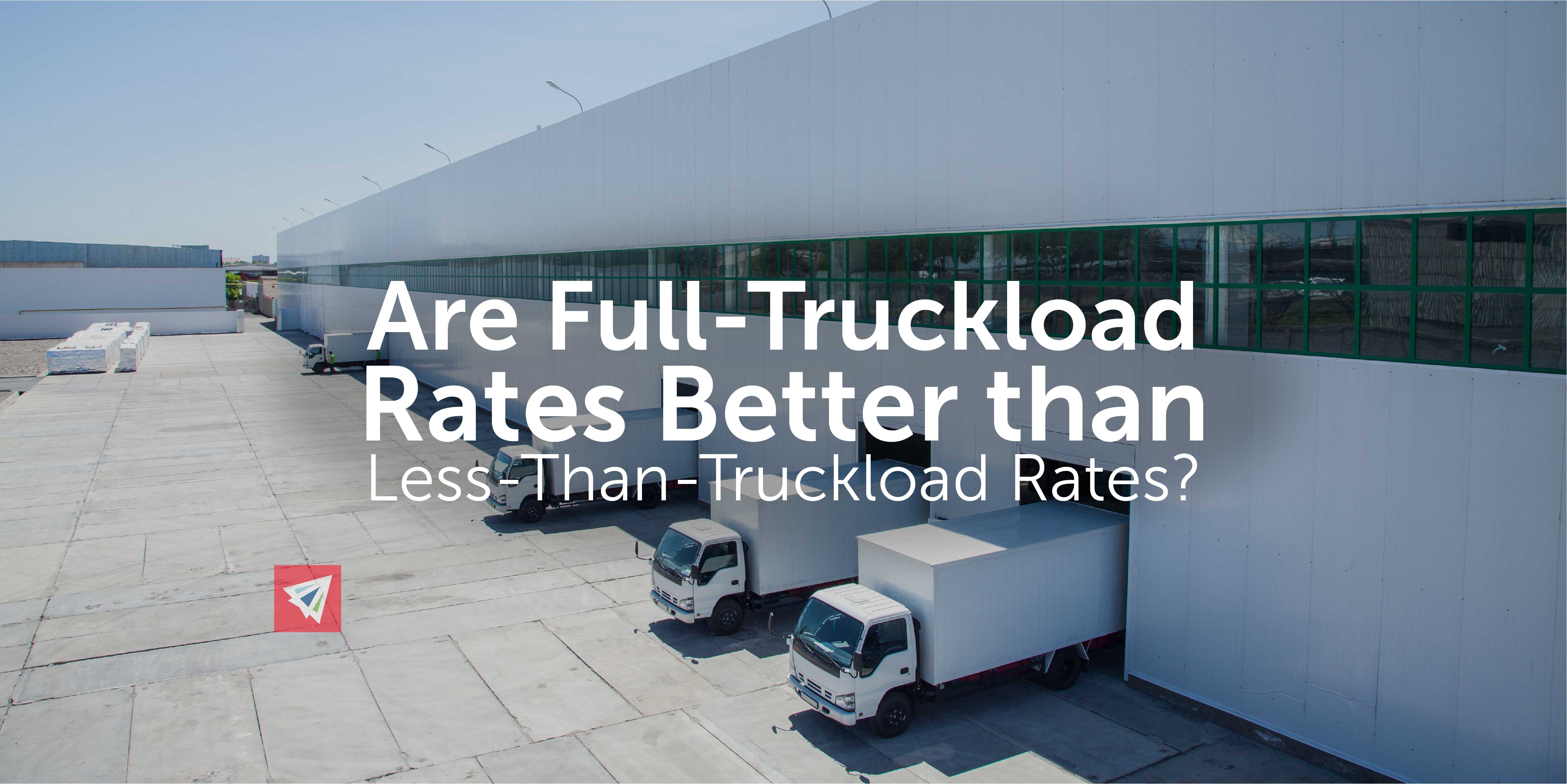Shipping practices and mode selection are often determined based on final price. After all, for businesses who are shipping on a consistent basis, transportation makes for a large chunk of the budget. Anyone who ships locally is more than likely resorting to one of two methods: full truckload, or less-than truckload. Since rates are not linearly correlated to volume, depending on your situation, full truckload rates may prove cheaper than less than truckload rates.
Volume and Rates: A Non-Linear Relationship
While it remains true that higher shipment volume means higher costs, rates do not increase linearly with volume when changing modes. For example, cost will differ for a shipment of the same volume depending on if it ships via full truckload or LTL. Make sure to talk with your carrier or freight forwarder about what they consider to be the “tipping point”.
The tipping point can be thought of as the breaking point at which the price of an LTL shipment would be cheaper if the whole trailer space was bought out as a full truckload shipment. Full truckload rates are cheaper than less than truckload rates once volume reaches approximately quarter to one third of the trailer’s capacity, although this price will greatly depend on the lane, distance, and many other variables.
How Capacity Affects LTL and Full Truckload Rates
Everyone knows that capacity has been tight as of recently. Much of this has to do with the new ELD mandate that is affecting all truck drivers. However, the capacity crunch is different across different modes of transportation, so LTL rates and full truckload rates are responding differently to the situation.
As a rule of thumb, full truckload availability almost always declines during capacity crunches. This leaves shippers to choose between LTL and parcel shipping. It’s important to remember than non-palletized LTL shipments have lower dimensional volume, so pricing may benefit from selecting parcel methods instead. Essentially, shippers often look for ways to consolidate parcels into larger LTL shipments. However, moving cargo to a destination without adding unnecessary LTL travel miles is difficult. Situations like this call for strategic planning help from 3PL’s like Interlog USA.
Planning Around Shipment Frequency
Although LTL rates are cheaper than full truckload rates for smaller shipments, the cost savings a company will experience between LTL and full truckload will greatly depend on their frequency and volume of shipments.
Many companies who have a lot of volume choose to break down their shipments into multiple, small LTL shipments. The price tag per-shipment is lower, and the frequency of transport is often attractive to businesses that need their products moving at all times. But many companies who have a backlog of products would benefit greatly from consolidating shipments into full truckload shipments. Here’s why:
With LTL shipping, you are paying for the space that you occupy in a trailer. The less space you occupy, the lower your rates are. However, with full truckload rates, you are paying to reserve the entire trailer for yourself. For companies that produce enough products to fill a trailer, it may be a cost-effective decision to lessen their frequency of shipments in order to reap the benefits of lowered overall transportation costs.
Conclusion
When it comes to making a decision between LTL and full truckload on the basis of price, you may find larger cost benefits in full truckload, but this will depend on the volume you ship. If you are frequently shipping goods via LTL, consider consolidating your freight into full dry vans and shipping less frequently in order to lower your overall transportation spend. Secondly, for long-hauls, LTL freight can get expensive. The additional mileage, consolidation services, and increased transit time associated with LTL all contribute to higher shipping costs. Lastly, the added risk of LTL shipments being damaged from frequent handling can cause for major headaches in the process.
Whether full truckload rates are better than LTL rates will depend on your situation. If you are interested in learning more about the potential benefits of switching from LTL to full truckload, reach out to one of our team members and we would be happy to talk with you!

One thought on “Are Full Truckload Rates Better than Less Than Truckload Rates?”